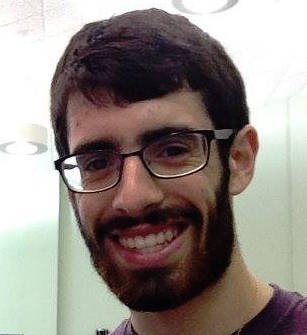This post was originally published on this site
There are a few major transitions in life that you know will change your life forever. Going to college is one of them. For anyone who commutes to college, perhaps the transition is not as stark (I wouldn’t know because I’ve only lived at school), but if you’re going from living at home your whole life to suddenly living in a dorm room with one or more strangers and taking care of yourself, there is absolutely no way to be fully prepared for it.
How could you be? You’ve never experienced anything like this before. You can’t go into it expecting to know every detail of how it will be.
Despite all this, I think I handled my transition pretty well. I figured out some of the things I did that worked, and others that didn’t. And here’s the thing: now that I’m a senior in college, I will be undergoing another one of these major changes, so I’m really writing this article to myself. All that being said, here’s Paul’s Guide to Major Life Transitions (Editor’s note: trademark pending), written specifically for transitioning into college.
1) Find a church
If you haven’t done so yet, do it right now.
Look up the school you’re going to (or the ones that you might go to if you haven’t committed yet), the city you’ll live it, etc., and find a church there. Doing that is way more important than anything I have to say in the coming paragraphs, so just stop reading this and go do that, it’s a better use of your time.
Then figure out how you’ll get there. Is the church close enough to walk to? You may want to give that a go. Will you have a car? If not, get in touch with your campus’ OCF advisor, president (talk to your regional leader if you can’t figure out who that is), or the parish priest of the church to see if someone could get you to church.
I am blessed with a parish here filled with people who were constantly offering to drive me to church, which was only a mile from my school. I got rides to every service I wanted to go to for three years until I finally got a car here.
I stress to you: do this now. Before you get to school. Once you get there you will be so overwhelmed with everything else going on that church can slip away way too easily. Do your research beforehand so that you can get in the habit of going to church early.
2) Be prepared, yet adaptable
This one is more my personal philosophy that may not work for you, but I’m thinking it might. You need just the right level of mental and physical preparation transitioning to college or elsewhere. Saying, “I’ll figure it out when I get there,” is probably not the best preparation method, yet if your planning is too detailed, you will be completely thrown off the first time something contradicts your plans.
You will want some ideas of how you will approach your classes, your social life, your church life, etc., but don’t write anything in stone in your head. There are so many factors that you can’t control, so write all of your plans in pencil with a great big eraser waiting to rewrite things as necessary.
(Side note: I strongly recommend taking this same approach with your major. Go into college knowing what you like and what you might want to do if you can, but keep an open mind and be willing to make adjustments to your plan.)
3) Do stuff
College is amazing. You get to be in an environment where your job in life is just to learn as much as you can, taking it all in from the experts, so that you can go out into the world and be the best you can be at whatever you do. So go take advantage of it. For example, my school brings in a guest speaker every week and gives pizza to anyone who goes and listens to the talk. I go as often as I can regardless of the topic because that’s what college is about.
Outside of academics, keep doing what you love. In my case, I had the opportunity to keep playing trombone after I got into college, so I joined the band and the orchestra. But even more importantly, try new stuff. One of the best decisions I made in college was joining the ultimate frisbee team. I knew nothing about the sport besides the rules when I went to my first practice, and I instantly fell in love with it.
(Editor’s note: We will neither confirm nor deny if this is Paul.
It is.)
College is about learning as much as you can and developing as a person, but that can happen outside of the classroom, lab, or lecture hall. My opinion is that if you live at school and the only commitments you have are class-related, you’re not doing college right.
4) Every once in awhile, remember you enjoy what you do.
Most college students would tell you college is overwhelming, and in my experience, they’re right. If you’ve been adding up all the things that I tell you I do, you may conclude that I’m a busy person, and sometimes I get stressed and collapse into a state of wanting to ignore my responsibilities.
But I found a trick to avoid reaching that state: it’s to remember that I actually do enjoy what I’m doing. My classes this semester are in psychology (my major), Spanish (my minor), and philosophy (I’m a nerd, so that’s my ‘fun class’).
(Editor’s note: this is also Paul.)
I chose to study that stuff because I enjoy it. I do music stuff and ultimate frisbee stuff because I enjoy those things, and the truth is that when I’m home too long for a break, I’m begging in my head for the opportunity to do all of them again. So basically what I’m saying is, have fun every step of the way.
5) Talk to adults
I didn’t do this intentionally, but a few times it came up. I’m guessing that many of the adults in your life have been to college: ask them about it. What did they enjoy? What weren’t they prepared for? What do they regret? What advice do they have? You’re allowed to learn from other people’s experiences, not just your own.
As with all my lists, these are the things that help me that I think would help you. What would you add? What would your friends in college/older siblings/parents add? I pray that your transition goes well, and that those of us currently in college can still take what we can from these lessons and apply it.
 Paul Murray is a senior psychology major and Spanish minor at Franklin & Marshall College, and he attends Annunciation Greek Orthodox Church in Lancaster, PA. His home parish is St. George Antiochian Orthodox Church in New Kensington, PA, and he has spent the past three summers serving as a counselor at the Greek Orthodox Metropolis of Pittsburgh Summer Camp and the Antiochian Village. In his free time, Paul ties prayer ropes and writes descriptions of himself in the third person for blog articles.
Paul Murray is a senior psychology major and Spanish minor at Franklin & Marshall College, and he attends Annunciation Greek Orthodox Church in Lancaster, PA. His home parish is St. George Antiochian Orthodox Church in New Kensington, PA, and he has spent the past three summers serving as a counselor at the Greek Orthodox Metropolis of Pittsburgh Summer Camp and the Antiochian Village. In his free time, Paul ties prayer ropes and writes descriptions of himself in the third person for blog articles.




